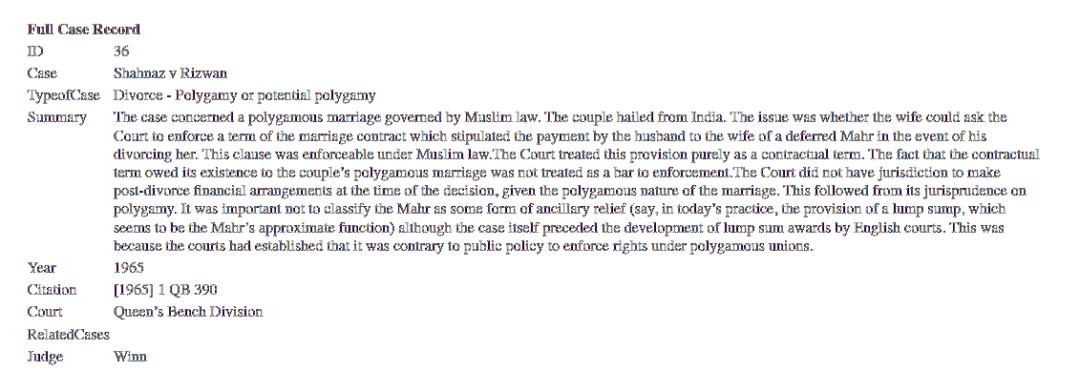You have before your eyes the summary of the leading case in relation to ‘Mahr’ claims in England. In Islamic law, ‘Mahr’ is something of value paid to the bride either on the day of marriage (‘Nikah’) or deferred to a trigger event (divorce or death of the husband). Since an Islamic marriage is a contract and not a sacrament, there is a room in English contract law to enforce the payment by the husband to the wife of a deferred ‘Mahr’. The case of Shahnaz v Rizwan (1965) created a precedent for the recognition of ‘Mahr’ in British law. It testifies of the new legal assemblages born out of the encounter between Islam and the British legal system. My on-going work on the Islamic legal culture of the UK aims to trace the various ways in which Islam appears (or not) in the British legal field. The ‘court case’ seems to be a major authoritative instrument in this process of visibilisation. Ironically, such documents remain quite obscure and difficult to decipher for anyone non-acquainted with the language of the law.




